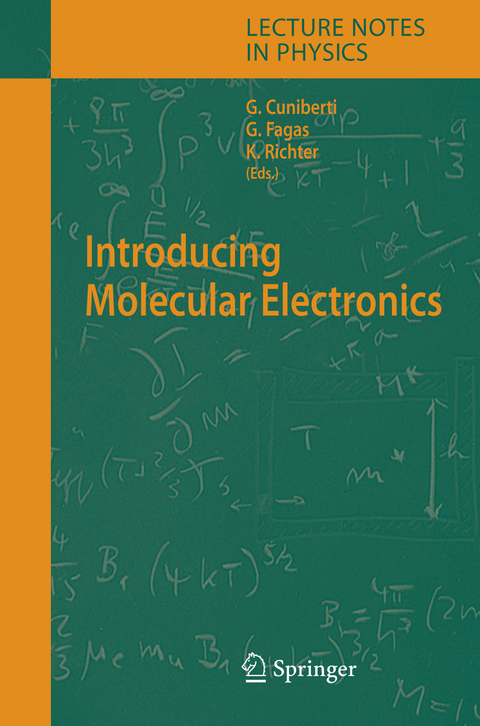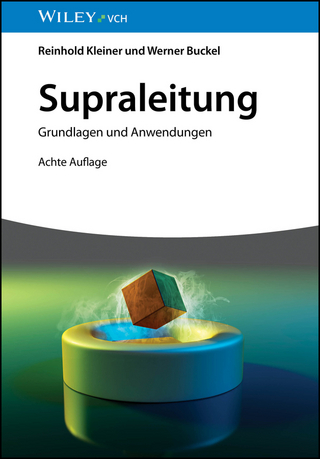
Introducing Molecular Electronics
Springer Berlin (Verlag)
9783642066283 (ISBN)
Theory.- Foundations of Molecular Electronics - Charge Transport in Molecular Conduction Junctions.- AC-Driven Transport Through Molecular Wires.- Electronic Structure Calculations for Nanomolecular Systems.- Ab-initio Non-Equilibrium Green's Function Formalism for Calculating Electron Transport in Molecular Devices.- Tight-Binding DFT for Molecular Electronics (gDFTB).- Current-Induced Effects in Nanoscale Conductors.- Single Electron Tunneling in Small Molecules.- Transport through Intrinsic Quantum Dots in Interacting Carbon Nanotubes.- Introducing Molecular Electronics: A Brief Overview.- Introducing Molecular Electronics: A Brief Overview.- Experiment.- Contacting Individual Molecules Using Mechanically Controllable Break Junctions.- Intrinsic Electronic Conduction Mechanisms in Self-Assembled Monolayers.- Making Contacts to Single Molecules: Are We There Yet?.- Six Unimolecular Rectifiers and What Lies Ahead.- Quantum Transport in Carbon Nanotubes.- Carbon Nanotube Electronics and Optoelectronics.- Charge Transport in DNA-based Devices.- Outlook.- CMOL: Devices, Circuits, and Architectures.- Architectures and Simulations for Nanoprocessor Systems Integrated on the Molecular Scale.
| Erscheint lt. Verlag | 22.10.2010 |
|---|---|
| Reihe/Serie | Lecture Notes in Physics |
| Zusatzinfo | XIX, 517 p. |
| Verlagsort | Berlin |
| Sprache | englisch |
| Maße | 155 x 235 mm |
| Gewicht | 793 g |
| Themenwelt | Naturwissenschaften ► Physik / Astronomie ► Atom- / Kern- / Molekularphysik |
| Schlagworte | Carbon Nanotubes • Circuit • Computer • Electronics • electronic structure • Molecular devices • Molecular electronics • Molecular wires • Molecule • Nanoscale conductors • nanostructure • Nanotube • quantum dot • Simulation • Transport |
| ISBN-13 | 9783642066283 / 9783642066283 |
| Zustand | Neuware |
| Informationen gemäß Produktsicherheitsverordnung (GPSR) | |
| Haben Sie eine Frage zum Produkt? |
aus dem Bereich


